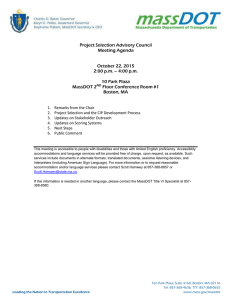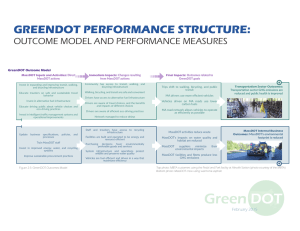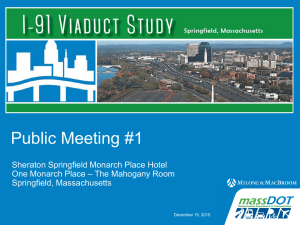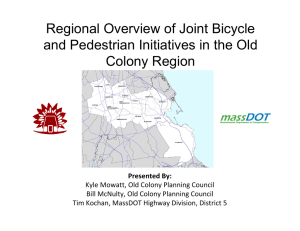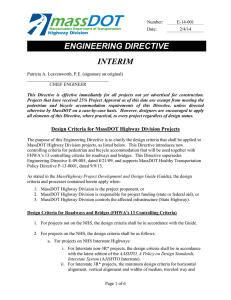MassDOT January Overview 20,
advertisement
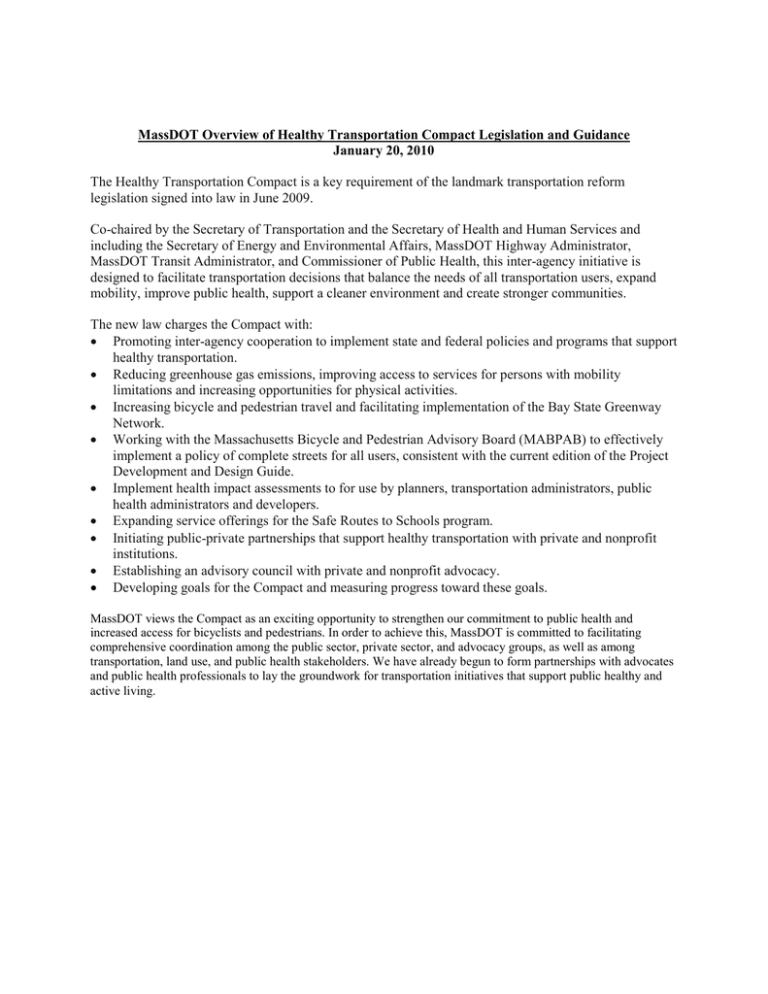
MassDOT Overview of Healthy Transportation Compact Legislation and Guidance January 20, 2010 The Healthy Transportation Compact is a key requirement of the landmark transportation reform legislation signed into law in June 2009. Co­chaired by the Secretary of Transportation and the Secretary of Health and Human Services and including the Secretary of Energy and Environmental Affairs, MassDOT Highway Administrator, MassDOT Transit Administrator, and Commissioner of Public Health, this inter­agency initiative is designed to facilitate transportation decisions that balance the needs of all transportation users, expand mobility, improve public health, support a cleaner environment and create stronger communities. The new law charges the Compact with: • Promoting inter­agency cooperation to implement state and federal policies and programs that support healthy transportation. • Reducing greenhouse gas emissions, improving access to services for persons with mobility limitations and increasing opportunities for physical activities. • Increasing bicycle and pedestrian travel and facilitating implementation of the Bay State Greenway Network. • Working with the Massachusetts Bicycle and Pedestrian Advisory Board (MABPAB) to effectively implement a policy of complete streets for all users, consistent with the current edition of the Project Development and Design Guide. • Implement health impact assessments to for use by planners, transportation administrators, public health administrators and developers. • Expanding service offerings for the Safe Routes to Schools program. • Initiating public­private partnerships that support healthy transportation with private and nonprofit institutions. • Establishing an advisory council with private and nonprofit advocacy. • Developing goals for the Compact and measuring progress toward these goals. MassDOT views the Compact as an exciting opportunity to strengthen our commitment to public health and increased access for bicyclists and pedestrians. In order to achieve this, MassDOT is committed to facilitating comprehensive coordination among the public sector, private sector, and advocacy groups, as well as among transportation, land use, and public health stakeholders. We have already begun to form partnerships with advocates and public health professionals to lay the groundwork for transportation initiatives that support public healthy and active living.
